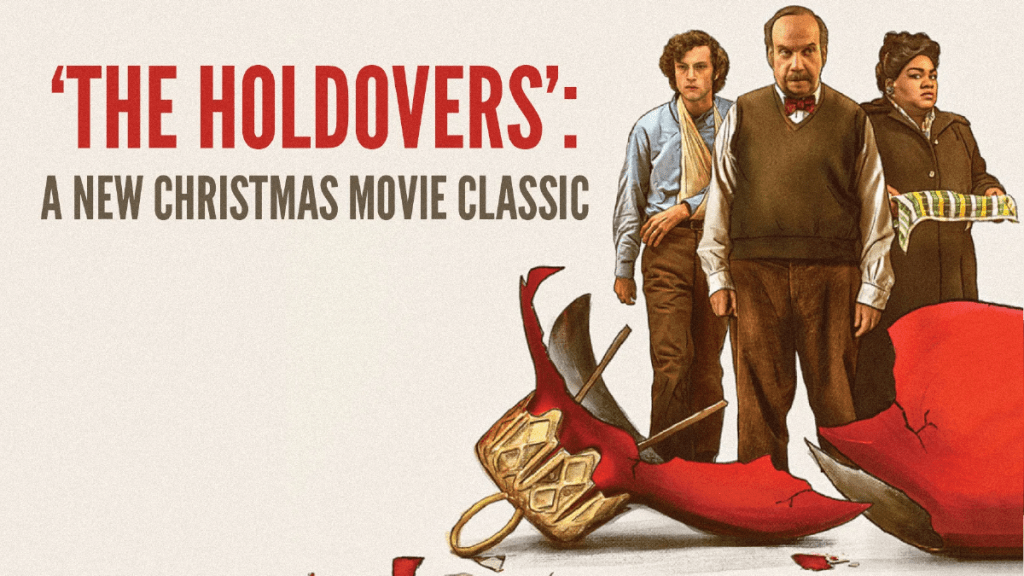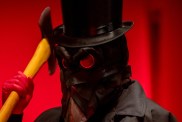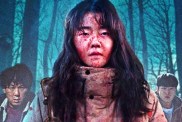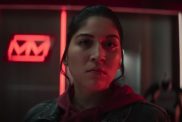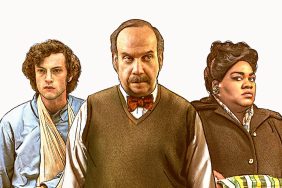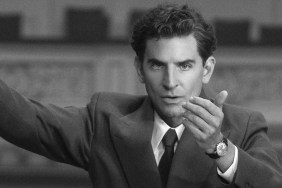ComingSoon had the opportunity to speak with composer Mark Orton about his fantastic score for Alexander Payne’s equally fantastic The Holdovers, which is now available digitally.
CS: In The Holdovers, the story revolves around a history teacher and a troubled student. Did you draw inspiration from any historical musical themes or time periods to connect with the characters’ backgrounds or experiences?
There was a broader note that had to do with this idea that Alexander was making a film that wasn’t just taking place in the 70s but rather had the look and feel of a film actually made in the 70s. In terms of how this translated into the composition process, we spent roughly a week together talking about the music of the era and what did and didn’t resonate for him. So I think in terms of musical themes I simply had to make sure that nothing I was writing betrayed the time period. This meant leaning towards some of the music of the time with the songier side of the score and staying essentially time-period-neutral for the more traditional scoring moments.
Can you describe a specific scene or moment in the film where your musical composition provided a surprising or unexpected emotional depth that viewers might not anticipate?
I think that the “Drive to Boston” cue probably has a certain emotional depth that isn’t explored previously – and that it lets the audience breathe somewhat of a sigh of relief after a lot of acrimonious (though funny as hell) narrative previously. There’s a certain hopefulness to the cue that’s a first for the characters, although it does remain tinged by a bit of melancholy.
Given the remote prep school setting and the isolation of the characters during the holidays, how did you use music to create a sense of place and solitude within the score?
There is a sense of isolation – or maybe it’s more like loneliness as these characters are left behind during the holidays at an otherwise empty prep school. They’re abandoned, save for each other. I use unaccompanied alto and bass flute throughout the score to represent this. I also think the less hurried phrasing of the themes and spare instrumentation (in the first ½ of the film especially) ties to this sense of solitude.
The film is described as a mix of drama and comedy. How did you balance these contrasting elements within your score to maintain a cohesive musical narrative?
Alexander’s tastes in film music mean that the music should never lead emotion or humor, so generally speaking the first order of business is to not inform the drama and comedy – or certainly not amp it up in some way. Supporting it is ok, but most of the time I’m looking for ways to stay neutral enough to let the characters and story lead the way. As far as finding the right balance between drama and comedy, I’ve always enjoyed threading that needle, and in some ways it’s made easier by not going overtly into one or the other. I’ve also always been drawn to music that can take on different personalities depending on its setting/use. That’s not to say that I’m writing a bunch of droning neutral backdrops – it’s a very thematically driven score. It’s rather that the themes have to have a kind of flexibility that allows for them to take on meaning from the narrative. I hope that’s not too obtuse….
Collaboration is often a key aspect of film scoring. Could you share any unique anecdotes or challenges you faced while working with Alexander Payne and the creative team on ‘The Holdovers’?
Well…It’s unique in that I love everyone involved! Alexander has built this fantastic family around him and many of his collaborators have been on all his films back to Citizen Ruth. Richard Ford is his longtime music editor and we worked together closely on this score (also on Nebraska’s). Richard’s the person who turned Alexander onto my music to begin with and we’ve worked together on many projects since. He’s a great collaborator and given their history, he had what amounted to insider information on Alexander’s methods and tastes which proved very helpful in my early years working with him.
Alexander is very musical to the point where he asked me “is that a minor 7 chord?” from across a room as I was mocking up something for him in person. He’s also very clear about what he does and doesn’t like, which I so much prefer to a less sure-handed approach. I always tell directors that “I had a happy childhood,” encouraging them to not pull punches – I’d rather know when something wasn’t working for them. I do remember auditioning one of the early (more comic) cues and Alexander saying, “I’m glad you mentioned that happy childhood because this one isn’t working for me.”
In Nebraska, you employed a blend of folk and acoustic music. Did you incorporate any particular musical styles or genres that are unique to The Holdovers?
Definitely yes. As I mentioned earlier, we went after some true early 70’s sounds on the songier side of the score. This comes out most in the montages and end credits cues. I put together a great band for it with some fantastic musicians (that play in retro rock bands) knowing that they would know full well how to achieve an authentic sound. It’s an era of music that I love and grew up listening to — coveting my older brother’s record collection and later covering that music in my first rock bands.
It’s also an era that was sonically built off of some of the most desirable gear if you’re a player – the most collectable gear — my fender amps and guitars, my Gibson Les Paul, my Wurlitzer electric piano, etc etc – all are from the late 60’s early 70’s. Same goes for a good amount of the outboard gear I use in my studio. I’m an engineer as well as a composer and record and often mix my own scores. I do so through analog gear – I still run Pro Tools out through an analog mixer and have a bunch of vintage outboard that lines up well with going after retro/classic sonics.
How do you approach incorporating silence and quiet moments into your score when the absence of music itself becomes a powerful element in the storytelling?
I really don’t like the wall to wall trend that’s permeated so much of film and especially TV/Series/Episodic work. I value silence a great deal.
That’s a real consideration for me when I’m spotting a film, and remains a consideration when I’m pacing cues within a film. I also feel that a certain openness or space within the music can have a strong effect. So allowing for some patience between statements of a theme or simple breaks in the phrasing generally can allow for more appreciation of that melody – or in the case of film, for more connection with the story or an emotion or character. A case and point is the way I tried to handle Angus’ trip to and from the nursing home. These scenes are scored with a couple of spare piano themes that leave a lot of time for reflection of what the character is going through.
Are there any musical themes or motifs in The Holdovers that you believe will stick with the audience long after they’ve seen the film? If so, could you describe them?
I think the strongest in terms of a hook (for lack of a better word) is the theme for the drive to Boston. This same theme comes back at the end of the film in the credits. It’s also probably the closest thing to the music from “Nebraska” (and in fact, the cue had a working title of “Nebraska-esque” early on). It’s a kind of traveling waltz – it can be felt in 3/4 or 6/8, but one of its guitar tracks is crossing the time in a kind of hemiola pattern throughout most of it. The theme is stated on guitar and doubled by accordion, but there is also some electric piano, organ, bass and percussion/drums underneath.
I also use a theme that gets the royal treatment in terms of arrangements. It’s starts off as the first somewhat happy theme as “You Guys Like to Ski?” with a small jazz combo in a swung 6/8 that’s led by alto flute, but it is quickly revisited in the next scene by a boys choir with timpani for “Let’s Make the Best of It” in a decidedly more dramatic version. That theme comes back for a third time later in the film in a jauntier variation that dances awfully close to spaghetti western and accompanies one of the lamest throws of a football ever captured on the big screen.
Film scores often take viewers on an emotional journey. Can you talk about the emotional arc of your music throughout The Holdovers and how it mirrors the characters’ development?
There are several cues that hew closer to the emotion in the film – the nursing home cues in particular, along with one kind of “goodbye” cue towards the end – but much of the music allows for the narrative to grow. It’s music that reflects what’s on screen and what’s developed in the story rather than leading it, and it’s neutral enough to allow for that development and even support it. This aligns with Alexander’s aesthetic and gets at something I’ve always been fascinated with in music, which is a bit hard to describe. I can liken it to holding up a prism to a light source and adjusting the angle to watch how the light shifts – I aspire to do something similar musically, especially with the more thematic side of what I do, so that a theme can take on meaning and dimension over the course of a film depending on the scene it’s playing under, rather than it being tied to just one scene or character or emotion. In other words, I’m more interested in writing a theme that can morph and be seen from different angles depending on the scene that’s playing over it.
The holiday season is a time of tradition and nostalgia. Did you weave any traditional holiday or seasonal elements into your score to resonate with the film’s themes?
I used a ton of bells and chimes and even some sleigh bells in the score. There’s also celesta, which certainly has the “Nutcracker” association. That said, we worked hard to find sounds that were less traditional – I now have a LARGE collection of sleigh bells for instance – with the idea that this is not a traditional Christmas film, the characters are flawed and often prickly, and the music should reflect this. This translates to my using a beaten up sleigh bell or a toy piano rather than a fancy orchestral sleigh bell or celesta. There’s a ton of great source music (songs) in the film that get at the more traditional side of holiday music so I felt a bit more flexibility I suppose, though at the same time I was careful not to get too campy with it.
What do you have upcoming?
One of the most surreal things that happened during the later stages of scoring The Holdovers was this slowly unfolding conversation about licensing some of my pre-existing music for an upcoming Netflix series (which I knew nothing about). A request to license one track turned into two. I then sent along more music and suddenly had a dozen tracks in their series. At this point, as I’d feared, they asked if I’d come on board to score it. I let them know I was in the midst of a feature, and what’s more, I knew nothing about their project.
Several NDAs later, I found out I’d been going back and forth with Obama and was getting asked to score his Netflix series, Working: What We Do All Day. It took some serious juggling but ended up timing out right and I was able to complete both projects. That was immediately followed by another Netflix series working for a director I really love, Jared Hess (Napoleon Dynamite, Nacho Libre) for a project called Muscles & Mayhem: An Unauthorized History of The American Gladiators. It was a total blast and a complete gear shift from the world of The Holdovers — and just the kind of hard right musical turn that I love about my job.
